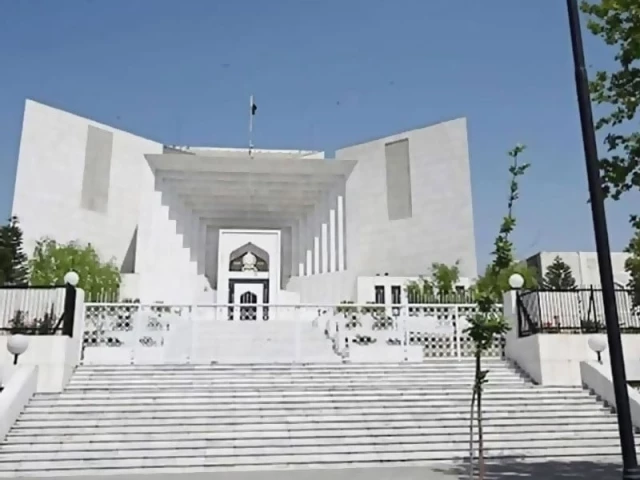PAKISTAN:
The Supreme Court (SC) on Tuesday continued hearings on petitions challenging the super tax, as the Federal Board of Revenue (FBR) defended Parliament’s authority to impose the levy.
A five-member constitutional bench (CB) headed by Justice Aminuddin Khan heard arguments from FBR counsel Hafiz Ehsan Khokhar, who maintained that Section 14 of the Finance Act had not been changed, “only its purpose altered.” He argued that the case did not raise questions of legislative competence, adding that taxpayers who had failed to file returns were now “seeking benefits” through litigation.
Justice Jamal Khan Mandokhail, however, pressed Khokhar on whether the National Assembly could pass a tax bill outside of the annual budget cycle. “Has the Constitution specifically granted Parliament this power?” he asked.
Khokhar replied that precedent existed, including in the 63-A Practice and Procedure case, and stressed that the Islamabad High Court’s (IHC) ruling striking down parts of the tax was “contradictory and not legally sustainable.”
“Whether it is Parliament or the Supreme Court, every institution is bound under the Constitution,” Justice Mandokhail observed, emphasising that High Courts were obliged to follow apex court judgments. Arguments from senior lawyer Ashter Ausaf began after Khokhar concluded.
Toward the end of the hearing, Additional Attorney General and the companies’ counsel, Makhdoom Ali Khan, approached the rostrum.
The Additional Attorney General informed the bench that the Attorney General would not be presenting oral arguments and would instead submit written arguments within two days.
Makhdoom Ali Khan, however, objected, saying he could not proceed until those submissions were placed on record.
The FBR’s counsels, Shahnawaz Memon and Ashtar Ausaf, concluded their arguments. The petitioner’s lawyer, Rashid Anwar, is set to begin his arguments tomorrow.
Read: Top court questions super tax on PFs
Earlier hearings
On Monday’s hearing, FBR counsel Asma Hameed conceded that provident funds had been granted partial relief under the law, but judges still pressed whether the super tax could legally be applied to such savings. “If Rs100 is taxed on a fund now, in 25 years it could grow to Rs550 — meaning retirement benefits would be lost,” Justice Rizvi observed.
In previous proceedings, judges scrutinised deductions from provident funds, with Justice Hasan Azhar Rizvi warning that taxing retirement savings could deprive widows and senior citizens of benefits.
The bench also noted contradictions in the IHC verdict and sought clarity on how Sections 4C and 9 of the Income Tax Ordinance should be read together.
The bench repeatedly questioned the fairness and impact of the levy. Justice Muhammad Ali Mazhar remarked that whether it was a cement bag or an LNG shipment, “the entire burden comes down on the common man,” while Justice Mandokhail cautioned that discouraging taxpayers risked pushing them out of the country.
Read More: SC questions super tax ‘burden on common man’
The super tax is an additional levy on high-earning companies and sectors, including cement, steel, banks and textiles, aimed at raising revenue for public welfare and economic stabilisation.
In the 2022–23 budget, the rate was set at up to 10 percent for incomes above Rs300 million. Industry groups have challenged the measure, arguing it raises costs and undermines competitiveness.

